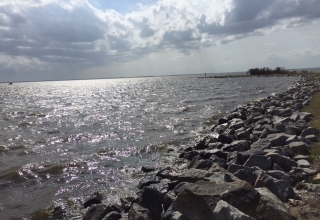
Imagine what it is like when the “game” is not golf – or even the game of “business” and generating income? Imagine what happens when the “game” is existential in nature—we play the “game” in order to survive and in order for the world as we want it to be continues to operate or transforms into a world in which we want to live. The pull to dishonesty and clinging to a “false” truth is even greater. Changing a golf score is one thing. Changing our perception of the world is a quite different matter.
We are now not only tiered, but also overwhelmed. We are saturated with information (Gergen, 2000) – and information that has become VUCA Plus saturated. Ariely introduces the term Self-Signaling to describe the ways in which we are likely to react when faced with overwhelm and fatigue. According to Ariely (2012, p. 122) “we don’t have a very clear notion of who we are.” As Gergen suggested, we are filled with multiple images of self. Ariely (2012p. 122) notes that “we generally believe that we a have a privileged view of our own preferences and character, but in reality we don’t know ourselves that well (and definitely not as well as we think we do). Instead, we observe ourselves in the same way we observe and judge the actions of other people—inferring who we are and what we like from our actions.”
We become the clothes that we wear, the car that we drive or the people we hang out with. We signal who we are by abandoning an internal sense of self and rely on our own appearance and affiliations for this definition. Most importantly, our identity is absorbed by the true believing world with which we affiliate. We are willing to accept and promulgate any lie and are willing to disseminate any misinformation in exchange for this externally supported identity. It certainly is an exchange with the Devil. However, it is an exchange that we seek out and with which we live – without complaint. This is the culture of relativism. It swirls around in our head and heart – often with the aid of media that also is swirling all around us and impacting on our head and heart.
The Role of the Media in spreading lies and misinformation
This kind of verbal manipulation is not a new phenomenon. Indeed Aronson (2018) describes in detail that these techniques have been used effectively throughout history. The critical difference in the modern world is how rapidly and powerfully misinformation is spread through social media:
It is good to be informed, and the media play a crucial role in keeping us informed. However, there can be a downside to this kind of exposure, as well. Whether it is intentional or not, repeated vivid imagery of this sort shapes attitudes and opinions. The constant images of the collapsing Twin Towers, as well as the repetition of bellicose slogans on news channels (“The War on Terror,” “America Under Attack!”, “America Fights Back!”), contributed to the arousal of intense emotions in viewers and thus reduced the likelihood of any real debate about how America should respond. In a democracy, major decisions — like whether to go to war — benefit from rational public debate. Strong emotions, such as those stirred up by the news media, often get in the way of rational decision-making.
“Rational public debate” of course suggests openness to conflicting and complex ideas and facts and flexibility in understanding one’s own point of view may be wrong. It also implies, as noted in the previous essay on conspiracy theories, some degree of critical thinking skill is required. Certain groups of people, especially those with a tendency towards “authoritarian personalities,” struggle to have an open mind and to apply critical thinking to ambiguous and complex phenomenon.















